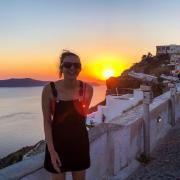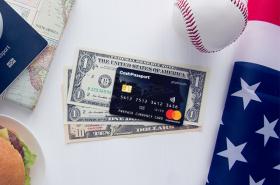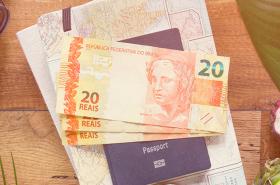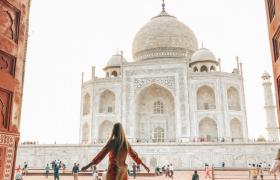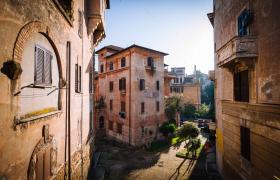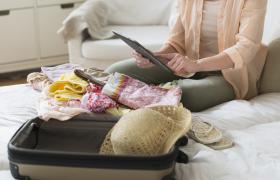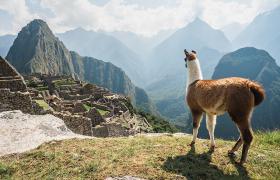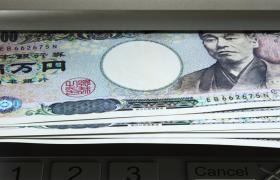In the last few years, South Korea has made a name for itself as a travel hotspot. Its unique cultural fusion of ancient customs and modern trends makes for an incredible tourist destination. Whether you are travelling to see the latest K-pop sensation, eat delicious food, peer across the border into North Korea or hike through breathtaking terrain, South Korea has something for every traveller.
One of the trickiest parts about planning a holiday to South Korea is organising a travel budget and deciphering the Kiwi dollar to South Korean won exchange rate. Luckily for you, the team at Travel Money NZ have put together a nifty travel budget planner that combines Numbeo data with the latest exchange rate to give you the most up to date idea of how much your trip will cost.
Before we Gangnam style our way to the budget planner, let's take a look at what is included in a South Korean travel budget.
What goes into a budget for South Korea?
Transport
Flights to Seoul are surprisingly affordable, and you can expect to pay anywhere from $600 (amazing deal) to $1700 (a bit more pricey).
Once you arrive in South Korea, you have a few different transport options. The country itself isn't that big, with Seoul only a four-hour train ride from the farthest city. When it comes to inter-city transport, you have a few options:
- Domestic flights: If you're in a hurry, hop on a plane to another city. Just keep in mind that this is one of the more expensive travel options.
- Car hire: While driving in cities like Seoul and Busan isn't for the faint-hearted, driving through the South Korean countryside can be quite beautiful. Car hire is relatively expensive, though, and the English translation of maps aren't always that accurate. If you are hiring a car, grab it from the airport when you arrive as it will likely offer the best prices.
- Train: Train travel is the most efficient and comfortable way of getting around South Korea, primarily because of their KTX high-speed bullet train that connects major cities across the country. Smaller towns are connected by their own rail lines. Purchase a KORAIL pass before you arrive to make things easier when you visit.
- Bus: If you can't get somewhere by train, chances are you'll be able to get there by bus. They are cheap and rarely crowded outside big cities. Carry small bills for local bus fares as drivers don't always have a lot of change.
When it comes to inner-city transport, public transport is the way to go. Seoul alone has more than 20 subway and extension lines in addition to hundreds of bus routes. Expect to pay about 1,250 KRW per ride, and grab a T-Money transit card to make your life easier. You can also grab a taxi, just bear in mind that traffic can get pretty cray-cray, so travel time might be longer than public transport. Taxi metres start at 3,800 KRW and go up from there.
Accommodation
Bigger cities like Seoul and Busan offer all of the expected accommodation options including hotels, motels, hostels, guesthouses and Airbnb's. Accommodation in the city can be expensive, especially during holidays like Chuseok (generally in September) and Korean New Year (late January/early Feb depending on lunar calendar). If you're staying in an Airbnb, don't be surprised if your bathroom doesn't have a separate shower or bath stall; instead, everything in the bathroom is all together, leading to a very wet floor after bathing. Keep in mind that traditional Korean style properties may only have sleeping mats on the floor as opposed to western-style beds. As you can imagine, Western-style luxuries will always come at more of a cost.
If looking at guesthouses, you may come across a few different options:
- Yeogwan are essentially older, less polished versions of motels. Generally found around bus and train stations, expect to pay between 20,000 and 40,000 KRW per night.
- Minbak are rented out rooms in a residential house. You'll find plenty of these on islands and near popular beaches and national parks. Expect to pay a similar price to a yeogwan; however, prices can skyrocket in peak season.
- Yeoinsuk are super cheap rooms that will set you back around 10,000 KRW per night. Generally found in older parts of town, you'll find with some blankets, a TV and a heated floor to sleep on.
If you plan on getting back to nature by camping or hiking, most national parks have campsite facilities that are either free or under 5,000 KRW per night.
Finally, if you're keen on a traditional accommodation experience, look for temples or Hanoks. You can organise temple stays for around 50,000 KRW per night that offer meditation, tea ceremonies and a few meals. Hanoks are traditional Korean buildings found in smaller villages and dedicated city districts. Quite often a tea ceremony is included in your accommodation cost.
Food
Korea has incredible cuisine that ranges from Michelin star meals to street food stands, kitsch cafes and unusual supermarket snacks. Travellers of all budgets will find something to satisfy their cravings; however, we recommend giving these dishes a try while you're there:
- Literally any of the street food at Kwanchang Market. Dishes range from 600 to 6,000 KRW, so you'll easily be left satisfied for less than NZD 15.
- Korean BBQ, in particular the pork belly and beef. Prices vary depending on what meat you choose but expect to pay around 25,000 for a substantial meal with high-quality ingredients.
- Tteokbokki, which is spicy rice and fish cake with a red sauce (2,000 and 3,000 KRW).
- Egg bread, which is a sweet bread with a fried egg inside (1,000 KRW)
- Hodduk, a doughnut-like treat filled with peanuts and honey (1,000 KRW)
- Foods on skewers. Think fish cake, fried squid, French fries and corn dogs. (8,000 KRW)
- Gimbap, which is essentially a huge sushi burrito full of rice and, literally, anything else you want, with meat, seafood and vegetables being the popular choices. (2,000 – 4,000 KRW depending on filling).
Don't forget to go crazy with kimchi, which can be found pretty much everywhere. It's also worth noting that meals at 7/11 are very affordable and delicious. Finally, drinking is a big part of South Korean culture, with plenty of beers, cocktails and Soju to go around. Better yet, drinks are incredibly cheap to buy from supermarkets and drinking on the streets is legal.
Activities
You won't be left struggling to find something to do in South Korea. Here are some of our top picks:
- Visit any of the palaces, temples and Buddhist landmarks for a glimpse into ancient cultural customs.
- Shop at Myeong-dong, one of the worlds most extensive shopping malls.
- Watch a Korean pop (K-pop) show
- Go hiking, climbing or camping at any of the urban parks. 70% of the Korean peninsula is covered by mountainous terrain.
- Visit the demilitarised zone and gaze into North Korea.
- Head to any of the museums
- Experience the incredible nightlife in the bigger cities, particularly Seoul, which was ranked the number one party city in the world.
- Belt out your favourite song at Karaoke, otherwise known as Noraebang in South Korea.
- Eat (a lot and everything)
- Get a Korean makeover with any of the Korean Beauty products. K-style and fashion is a massive part of the culture.
Day tours and entry to landmarks will vary in cost, so do some research and plan accordingly. Otherwise, it is completely free to walk the streets and soak up the incredible vibes and culture.
Pre-travel expenses
Kiwi's can get a visa on arrival for stays of up to 90 days. It's also worth checking with your doctor to see if you need any vaccinations before your trip.
We also recommend every traveller invests in travel insurance before their trip, regardless of where they are travelling.


